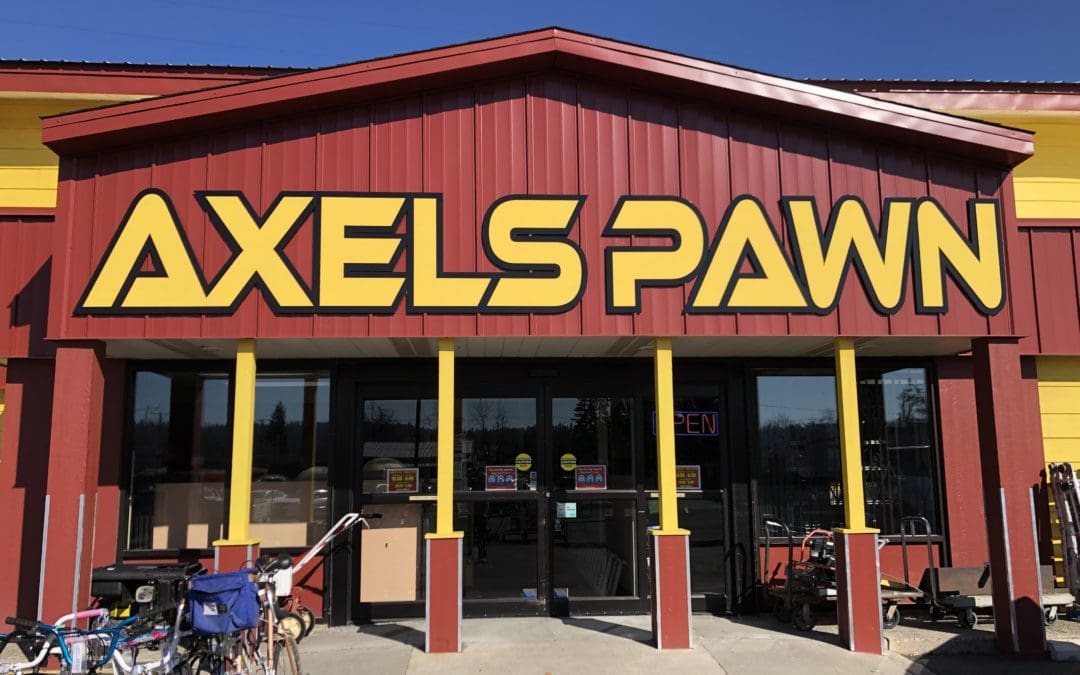Pawn shops are for everyone. Whether you’re in a financial pinch or on the hunt for a rare collectible, these establishments provide practical solutions for diverse needs. This article zeros in on how pawn shops operate as multifaceted hubs, offering quick loans, diverse products, and financial flexibility, effortlessly serving the community.
Key Takeaways
- Pawn shops offer inclusive financial services, providing secured loans without credit checks, unique items for sale, and serve as an essential resource for nearly 30 million Americans without traditional banking access.
- Pawnshop loans are fast, require only valid ID and collateral, and have no effect on your credit score. Interest rates can vary and may be significantly higher than other financial products.
- While pawn shops provide an important alternative for quick cash and financial flexibility, it is advisable to explore other options, such as personal loans, payday alternative loans (PALs), credit counseling, or side gigs for those in need of funds.
Demystifying Pawn Shops: Accessible to All

Approximately 10,600 pawn shops dot the United States landscape, providing various financial services to individuals irrespective of their credit history or income level. This inclusivity has contributed to their prevalence and accessibility. Unlike traditional banks or financial institutions, pawn shops offer secured loans, which are not based on your creditworthiness, but rather on the tangible property you provide as collateral. The National Pawnbrokers Association plays a significant role in regulating and supporting these businesses across the country.
Consider Axels Pawn, a family-run pawn shop with a rich 30-year history. More than just a business, it is a trusted community hub, offering financial solutions to all. The fact that pawn shops like Axels Pawn have prospered for years is a testament to their relevance, utility, and appeal to a diverse customer base.
A Diverse Range of Services at Your Local Pawnbroker


On stepping into a pawn shop, you might be surprised to find that it’s not just a place for buying, selling, or pawning items. Instead, pawn shops offer a diverse range of services that extend far beyond these basic transactions.
Quick Cash When You Need It Most
One of the primary services provided by pawn shops is the provision of pawnshop loans. These loans offer several benefits:
- They are fast and hassle-free, providing immediate access to funds.
- They are particularly beneficial for individuals in need of quick cash.
- Unlike traditional loans, pawnshop loans do not require extensive approval processes.
- To borrow money, you simply need a valid government-issued ID and valuable item for collateral. No credit check is required.
The beauty of pawnshop loans lies not only in their speed and convenience, but also in their impact (or lack thereof) on your credit score. In fact, acquiring a loan from a pawn shop has absolutely no effect on your credit score. This makes it an appealing option for those with bad credit or concerned about their financial standing.
From Vintage Finds to Modern Gadgets


Apart from the financial services, what truly draws customers to pawn shops is their inventory. A pawn shop is a treasure trove of diverse items, including:
- Jewelry
- Electronics
- Tools
- Musical instruments
For musicians, pawn shops can be a great resource to find instruments from renowned brands like Yamaha, PRS, and G&L, often at prices far less than their original retail value.
Pawn shops also cater to collectors and hobbyists. Whether it’s video games, consoles, or tools, these establishments offer various valuable and reasonably priced items ideal for personal use or resale. In fact, starting collectors can benefit greatly from the affordability of pawn shops, offering a selection of goods that cater to new collections on a budget. Moreover, pawn shops also serve as a resource for collectors looking to sell items to focus their collection or fund future acquisitions.
Turning Treasures into Loans
Now, when it comes to the actual process of obtaining a pawnshop loan, there are various items that can be used as collateral. These include:
- Jewelry
- Firearms
- Electronics
- Collectibles
- Tools
- Musical instruments
The process of obtaining a pawn loan is quite simple. You must be at least 18 years old, provide proof of identity, and bring an item of value for collateral. No credit check is required, which makes the process quick and straightforward.
Once your item is evaluated and the loan amount is agreed upon, you receive cash and a pawn ticket documenting the loan agreement. The pawn ticket is crucial, as it serves as proof of your loan and is required to retrieve your item once the loan and associated fees have been repaid.
Understanding the Nuts and Bolts of Pawnshop Loans
Despite the seemingly simple concept of pawnshop loans, a deeper understanding of how pawnshop loans work and their complexities is beneficial. This knowledge will empower you to make informed decisions and get the most out of your pawnshop interactions.
The Loan Lifecycle: Pawning to Repayment


The life cycle of a pawnshop loan starts with the pawning of an item. Pawnbrokers, like Axels Pawn, use sophisticated equipment to accurately appraise items like precious metals and diamonds, ensuring customers get a fair loan offer. Once you accept the loan terms, you get cash on the spot and a pawn ticket, which is your receipt and contains the terms of your loan.
When it comes to repayment, you simply return to the pawn shop, pay off the loan amount, including any fees and interest, to reclaim your pawned item. If you’re unable to repay the loan within the original term, many pawn shops offer the option to extend or renew the loan. However, failure to repay the loan and not renew it results in forfeiture of your item, which the pawn shop may then sell.
Evaluating Interest Rates and Fees
One important aspect to consider when opting for a pawnshop loan is the associated interest rates and fees. Interest rates on pawnshop loans can vary significantly by state, with a high annual percentage rate (APR), all within federal, state, and local regulations. It’s worth noting that pawnshop loans often have lower interest rates compared to other short-term lending options like payday and car title loans, which typically have APRs around 200%.
The annual percentage rate (APR) is crucial for comparing loans, as it provides a consistent basis for comparison across different types of loans and credit products. For instance, a pawnshop loan of $100 with $10 in fees due in 30 days typically runs an APR of about 122%, which is considered high compared to the 36% APR limit suggested by consumer advocates for affordability.
The Universal Appeal of Pawn Shops
By now, you might be starting to see why pawn shops hold such a universal appeal. From their diverse services to their unique inventory, pawn shops cater to a wide range of clientele, creating a marketplace for everyone.
For Collectors and Hobbyists


Pawn shops serve as a veritable gold mine for collectors and hobbyists. The unique inventory of collectibles, antiques, and rare items found in these establishments offers various unique and desirable pieces not typically found in conventional retail outlets. Whether you’re a comic book enthusiast, music lover, or vintage furniture aficionado, pawn shops provide various items suitable for various interests.
The availability of unique and vintage items at pawn shops is highly appreciated by hobbyists and collectors, who may struggle to find such pieces elsewhere, enhancing the value of pawn shops as a source for collectible hunting. Whether you’re looking to start a collection or refine an existing one, pawn shops offer a plethora of options to explore.
For Emergency Funds and Financial Flexibility
Pawn shops attract more than just collectors and hobbyists. These establishments serve as a critical financial resource for nearly 30 million Americans without traditional banking access, providing an average loan amount of $150. Pawn shops like Axels Pawn offer fast cash loans, accommodating various personal finance needs, from emergency expenses to money for special occasions.
Without a credit check, pawnshop loans offer a valuable fiscal alternative to consumers who cannot obtain traditional loans. Whether you’re in a financial crisis or simply need some extra cash for a special occasion, pawn shops provide a quick, easy, and accessible solution.
Making Smart Choices at the Pawn Shop
Despite the myriad benefits offered by pawn shops, navigating this world with informed prudence is key. Making smart choices can help maximize your benefits and ensure you get the most out of your pawn shop interactions.
Tips for Borrowers: Getting the Most from Your Loan
For borrowers, comprehending the dynamics of a pawn shop loan is of paramount importance. Here are some key points to keep in mind:
- The average loan amount provided by pawn shops is approximately $150.
- The loan amount typically represents about one-third of the item’s current market value.
- This can help set your expectations right when you walk into a pawnshop to secure a loan.
It’s also important to note that when obtaining a pawn loan, borrowers have limited room to negotiate due to the pawn shop’s requirement to maintain profitability on the loan. Being aware of these dynamics can help you navigate the process more effectively and ensure that you get the most out of your loan.
Advice for Sellers: How to Negotiate a Better Sale
For sellers, pawn shops can be a great platform to get a good deal, but it requires savvy negotiation. Pawnbrokers typically offer a price below market value for items with the intention to resell at a profit. So, if you’re selling an item, it’s important to set realistic expectations and be prepared to negotiate, keeping in mind the resale value of your item.
A good strategy for negotiating with pawnbrokers is to:
- Let the pawn shop make the first offer to avoid prematurely setting a price that could undermine your negotiation position.
- Listen and share minimal information during negotiation, as the pawnbroker could use the information to lower the item’s valuation.
- Conduct thorough research on an item’s market value and demand to strengthen your ability to negotiate with pawnbrokers.
Remember, knowledge is power, and in this case, it might help you secure a better deal with a private buyer.
In conclusion, pawn shops offer a unique blend of retail and financial services that cater to a wide range of customers. Whether you’re a collector looking for vintage items, a musician seeking affordable instruments, or an individual in need of quick cash, pawn shops provide a solution. With their diverse inventory and accessible loans, pawn shops like Axels Pawn have become a crucial part of many communities, offering financial solutions that are often more flexible and inclusive than traditional financial institutions.
However, as with any financial decision, it’s crucial to navigate the world of pawn shops with knowledge and prudence. Understanding the dynamics of pawnshop loans, being aware of interest rates and fees, and knowing how to negotiate can all contribute to a more positive and beneficial pawn shop experience. So the next time you pass a pawn shop, consider stepping in. You might just discover a world of opportunities waiting for you.
Frequently Asked Questions
How does a pawnshop loan work?
A pawnshop loan works by offering an item as collateral in exchange for a loan based on its appraised value, without impacting your credit score. This offers a way to secure a loan without traditional credit considerations.
What items can I pawn?
You can pawn items like jewelry, firearms, electronics, collectibles, tools, and musical instruments for a loan. These are commonly accepted as collateral for a pawn loan.
What if I can’t repay my pawn loan in time?
If you can’t repay your pawn loan in time, you may have the option to extend or renew the loan, but if not, the pawn shop may sell your item. Be sure to communicate with the pawn shop about your situation.
How can I negotiate a better sale at a pawn shop?
Research the market value of your item, let the pawnbroker make the first offer, and share minimal information during negotiation for a better sale at a pawn shop.





Recent Comments